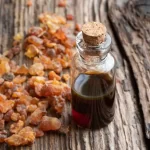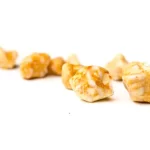This Plant is a Powerhouse For Digestion, Fat Loss, Lowers Blood Sugar, Supports Immunity & More!
Delicious, versatile, and bursting with a broad array of nutrients, the guava fruit is a tropical treat with powerful health benefits. The fruit, however, is just part of the story.
Unleashing the Potential of Guava Leaves
While the guava fruit is already well-known for its delightful taste and nutritional content, it’s the guava leaf that packs a surprising medicinal punch. Rich in potent antioxidants, anti-inflammatory and antibacterial agents, guava leaves have a rich history of being utilized for various health benefits.
Among the nutrients found in guava leaves are polyphenols, tannins, flavonoids, and carotenoids 1, all of which have shown potential for treating an array of ailments. These leaves are also a remarkable source of Zinc, a nutrient essential for DNA creation, cellular growth, tissue repair, and a robust immune response 2. Guava leaves are also an abundant source of vitamin C, a critical component for skin health and collagen production.
Moreover, the guava leaf is rich in a wide range of vitamins such as A, E, K, and a spectrum of B-vitamins, along with minerals like sodium, potassium, phosphorus, magnesium, iron, calcium, and even protein. This potent nutrient profile makes guava leaves an extraordinary tool for health.
Guava Leaves: Health Impact
Guava leaves harbor an impressive range of nutrients, all working synergistically to promote optimal health. Multiple studies have shown guava leaf’s potential for reducing constipation, halting diarrhea 3, and promoting overall digestive health.
Research has also indicated the presence of anti-cancer properties in guava leaf tonic, positioning it as a promising agent for overall health and immunity support 4. Its potential benefits extend to hair and scalp health, and preliminary studies have shown its potential to lower blood pressure naturally 5.
For women, guava leaves can offer significant relief during menstrual cramps and are considered a superior alternative to common painkillers 6. With this wide array of benefits, guava leaves are increasingly becoming a crucial addition to health-conscious individuals.
Guava Leaf Extract: Where Quality Meets Efficacy
For those interested in incorporating guava leaves into their daily routine, high-quality organic guava leaf extracts, offer an easy and palatable solution. These extracts usually come in powdered or liquid form and often include other beneficial plants and herbs like lavender, geranium, rosemary, moringa, fenugreek, aloe vera, ginger, orange, and amla7.
Such blends offer a rich variety of organic nutrients, acting as digestive aids while also supporting immunity, brain health, blood health, and lymphatic health.
Research also demonstrates that guava leaf significantly impacts blood sugar levels. One study with 19 participants showed that guava leaf tea lowered blood sugar levels after a meal [8]
Additional Health Benefits
Anticancer Effects of Guava
The guava leaf extract has shown significant potential for anticancer effects. Studies conducted both in vitro and in vivo suggest that this extract can inhibit and even halt the progression of cancer cells. These properties can be linked to the high concentrations of potent antioxidants in guava leaves that inhibit free radicals from causing cell damage, a leading cause of cancer.
One in-vitro study showed that guava leaf oil was four times more effective at inhibiting cancer cell growth than certain cancer medications. However, these promising results from test-tube experiments don’t directly translate to a definitive cure for cancer in humans. Additional comprehensive studies are necessary to affirm such claims.
Boosting Immunity with Guava
The high content of vitamin C in guava makes it an excellent dietary choice to enhance immunity. A single guava fruit provides nearly double the Reference Daily Intake (RDI) for vitamin C, almost twice the amount found in an orange. Vitamin C plays a crucial role in maintaining a robust immune system, with added antimicrobial benefits that help in fighting harmful bacteria and viruses (21).
Guavas for Healthy Skin
Guava’s rich vitamin and antioxidant content can improve your skin health. Antioxidants present in guava can protect your skin from damage, slowing down its aging process and helping to prevent wrinkles (22). Additionally, topical application of guava leaf extract can potentially treat acne due to its antimicrobial and anti-inflammatory properties, as shown in a test-tube study. Yet, more studies are needed to validate guava’s role in promoting skin health.
How to Make Guava Tea
If you want to try guava leaves, it’s best to consume them as tea, as the leaves are inedible.
Here’s how to make guava leaf tea using dried guava leaves.
Add 1–2 teaspoons (2.5–5 grams) of dried guava leaves to a tea infuser.
Add 1 cup (240 mL) of boiling water.
Steep for 5–10 minutes.
Alternatively, you can make tea from fresh guava leaves.
Wash 5–10 fresh guava leaves under cold running water to remove any dirt or residue.
Boil 2 cups (475 mL) of water on the stove, then add the leaves.
Reduce the heat and simmer for 10–12 minutes.
Remove from the heat and pour the liquid into a strainer over a wide cup or bowl.
Discard the leaves.
You can find dried or fresh guava leaves in specialty health stores.
The Bottom Line
Incorporating guava into your diet could enhance your heart health, digestion, and immune system while potentially offering benefits like supporting weight loss and skin health. Guava is a low-calorie tropical fruit rich in fiber and a potential addition to a healthy diet. The benefits of guava leaf extracts, often consumed as dietary supplements, have been supported by various studies.
While the medicinal potential of guava leaves and fruit is still under investigation, existing knowledge paints a promising picture. It’s hoped that future research will uncover even more health benefits linked to this versatile plant.












